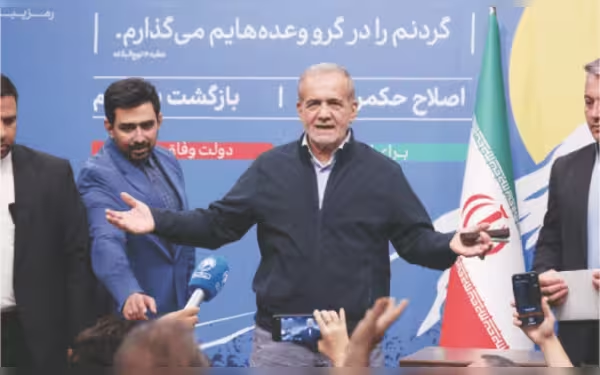Saturday, November 16, 2024 05:47 PM
Iranian President Offers Direct Talks with US on Hostility
- Iran seeks direct talks if US ends hostility.
- Raisi emphasizes Iran's defensive stance.
- Potential for dialogue amid US policy reassessment.
 Image Credits: dawn.com
Image Credits: dawn.comIran's President Raisi offers direct talks with the US if hostility ends, signaling potential for improved relations.
In a significant development in international relations, Iranian President Ebrahim Raisi has expressed a willingness to engage in direct talks with the United States, provided that the US abandons its current stance of hostility towards Iran. This statement comes amid ongoing tensions between the two nations, which have been marked by a series of sanctions, military posturing, and diplomatic standoffs.
President Raisi emphasized, "We are not hostile towards the US. It is not us who are hostile (to the Americans)." This assertion highlights Iran's desire for a more constructive relationship, suggesting that the ball is in the US court to change its approach. The Iranian leadership has long maintained that their actions are defensive and a response to perceived threats from the US and its allies.
The backdrop of this statement is crucial. The US and Iran have had a tumultuous relationship since the 1979 Iranian Revolution, which saw the overthrow of the US-backed Shah and the establishment of the Islamic Republic. Since then, both countries have engaged in a series of confrontations, including military conflicts in the region and disputes over Iran's nuclear program.
Raisi's comments come at a time when the Biden administration is reassessing its foreign policy strategies in the Middle East. The potential for dialogue could pave the way for a new chapter in US-Iran relations, especially if both sides can find common ground on contentious issues such as nuclear proliferation and regional security.
However, the path to dialogue is fraught with challenges. Many in the US government remain skeptical of Iran's intentions, citing past instances where negotiations have failed to yield lasting results. Additionally, domestic political pressures in both countries could complicate efforts to engage in meaningful discussions.
President Raisi's invitation for direct talks with the US, contingent on a shift away from hostility, presents an opportunity for both nations to reconsider their long-standing adversarial relationship. As the world watches closely, the next steps taken by the US will be critical in determining whether this overture leads to a thaw in relations or further entrenches the divide. The hope remains that dialogue can replace discord, fostering a more peaceful and stable future for both nations and the broader region.













